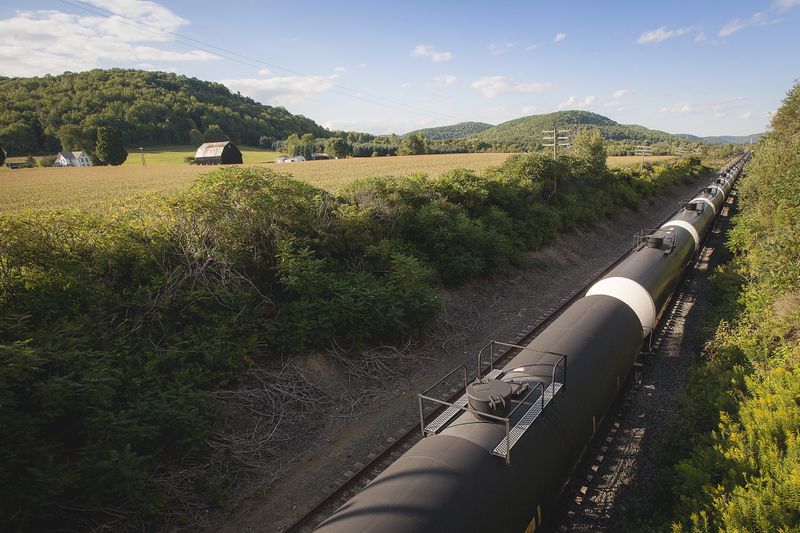By Devika Krishna Kumar and Laura Sanicola
NEW YORK (Reuters) - Railroads are clamping down on rising demand from oil companies to store crude in rail cars due to safety concerns, sources said, even as the number of places available to stockpile oil is rapidly dwindling.
Oil demand is expected to drop by roughly 30% this month worldwide due to the worsening coronavirus pandemic, and supplies are increasing even as Saudi Arabia and Russia hammer out an agreement to cut worldwide output. Storage is filling rapidly as refiners reduce processing and U.S. exports fall.
Globally, storage space for crude could run out by mid-2020, according to IHS Markit, and most U.S. onshore storage capacity is expected to fill by May, traders and analysts said.
However, railroads including Union Pacific (NYSE:UNP) and BNSF, owned by billionaire Warren Buffett, are telling oil shippers that they do not want them to move loaded crude trains to private rail car storage facilities on their tracks due to safety concerns, three sources in the crude-by-rail industry said.
The railroads are telling clients that tank cars are not a prudent long-term storage mechanism for a hazardous commodity such as crude, and do not want to put a loaded crude oil unit train in a private facility and potentially create a safety hazard, they said.
Federal rules typically only allow crude in rail cars to be stored on private tracks. There is no federal data on how much oil is regularly put in rail storage, but analysts said it is very little.
"Most federal regulations require rail cars loaded with ... crude oil to be moved promptly within 48 hours. Therefore, federal regulations discourage shippers and railroads from leaving crude oil in transportation for an extended time," transportation lawyers at Clark Hill LLC wrote in an article Thursday.
BNSF did not respond to several requests for comment. Union Pacific declined to comment.
Nearly 142 million barrels of crude moved via rail in the U.S. in 2019, representing about 10% of what is transported via pipelines, according to the U.S. Energy Department. Unit trains, made up entirely of tank cars, can carry around 60,000-75,000 barrels.
Even on smaller or mid-sized railroads, known as shortlines, there may be capacity constraints or insurance coverage may not be adequate, the railroads have said, advising rail companies not to store oil.
"It is arbitrary, and is happening at a time when it (storage) is an option being heavily considered by all companies that have access to crude by rail right now," one of the sources said.
As of September, there was enough crude storage capacity in the U.S. for about 391 million barrels of out of about 700 million working capacity, excluding the strategic reserve, according to the U.S. Energy Department. However, U.S. stocks have risen by 32.5 million barrels in just the last 4 weeks, including a 15-million-barrel gain in the latest week, the most ever.
Crude-by-rail shipments were not economic when oil prices were high but are expected to rise as prices have plunged. Loadings out of the Permian basin, the biggest in the country, slumped to about 12,500 barrels per day (bpd) in January, the lowest in at least a year, before rising to about 13,200 bpd in February, according to data from Genscape.
Demand is falling so swiftly that rail cars loaded with crude may not be accepted by the time they reach their destination three-to-five days later, leaving barrels orphaned without a storage option, one trader said.

Rates to lease rail cars have dropped sharply due to the crash in oil prices, making them more attractive for storage. Lease rates for rail cars have fallen from about $800 per month to about $500, said Ernie Barsamian, founder and CEO of The Tank Tiger, a terminal storage clearinghouse.